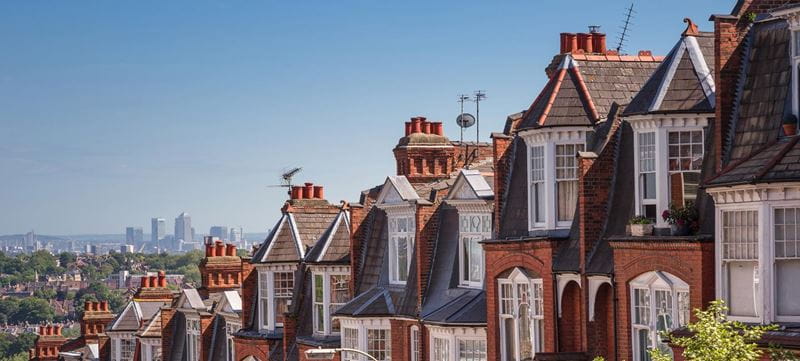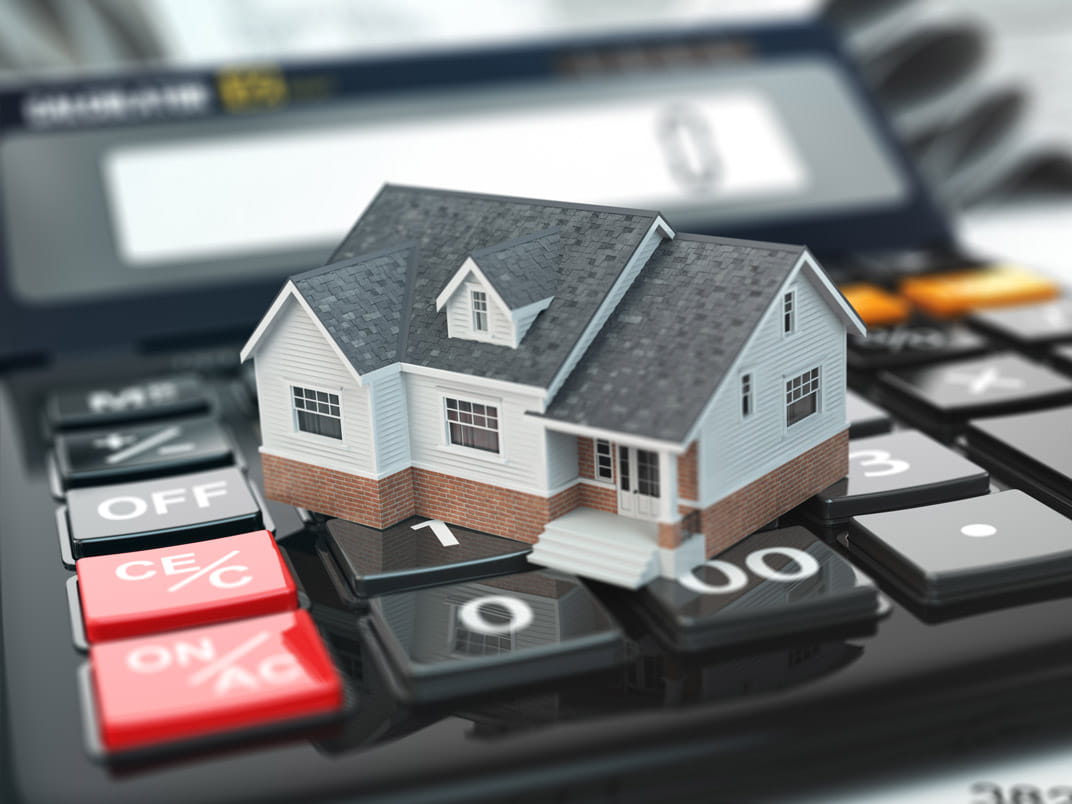

This article is for general guidance only and is not financial or professional advice. Any links are for your own information, and do not constitute any form of recommendation by Saga. You should not solely rely on this information to make any decisions, and consider seeking independent professional advice. All figures and information in this article are correct at the time of publishing, but laws, entitlements, tax treatments and allowances may change in the future.
Stamp duty hit the headlines after the row over Angela Rayner’s purchase of a flat in Hove. After weeks of media speculation about the purchase, it emerged that the (now former) deputy prime minister underpaid around £40,000 in stamp duty on the £800,000 flat.
Her mistake, linked to complex rules on second-home surcharges and property trusts, highlights how confusing stamp duty can be, even for senior politicians. With that in mind, this guide breaks down how stamp duty on property purchases works, who needs to pay, and what you need to know so you don’t fall foul of the rules.
What’s on this page?
Stamp duty land tax is payable when you buy a property or a piece of land over a certain value. In England and Northern Ireland, its full name is Stamp Duty Land Tax (SLDT), while in Wales it’s called Land Transaction Tax (LTT), and in Scotland, it’s known as Land and Buildings Transaction Tax (LBTT).
It's a complicated tax, and there have even been rumours that it could be replaced with a different kind of tax in the next Budget.
But for the time being at least, stamp duty applies to freehold and leasehold properties and you pay it no matter whether you’re buying the property outright or with a mortgage. Rates are tiered which means you only pay the percentage rate on the part of the property price within each band. The thresholds outlined below apply if the property will be your main residence and if you’re not a first-time buyer:
| Property price | Stamp duty rate |
|---|---|
|
£0 - £125,000 |
0% |
|
£125,001 - £250,000 |
2% |
|
£250,001 - £925,000 |
5% |
|
£925,001 to £1,500,000 |
10% |
|
Over £1.5 million |
12% |
As an example, if you bought a property for £400,000, you would pay:
Slightly different rules apply to first-time buyers, who in England and Northern Ireland only pay stamp duty on properties worth more than £300,000.
| Property price | Land and buildings transaction tax rate |
|---|---|
|
Up to £145,000 |
0% |
|
£145,0001 to £250,000 |
2% |
|
£250,001 to £325,000 |
5% |
|
£325,001 to £750,000 |
10% |
|
Over £750,000 |
12% |
| Property price | Land transaction rate |
|---|---|
|
Up to £225,000 |
0% |
|
£225,001 to £400,000 |
6% |
|
£400,001 to £750,000 |
7.5% |
|
£750,001 to £1.5 million |
10% |
|
Over £1.5 million |
12% |
Generally, the stamp duty you pay on a leasehold property is similar to a freehold - especially if you’re buying a property with an existing lease.
If it’s a new property, the stamp duty calculation is different, though this usually doesn’t make a substantial difference to the actual amount of stamp duty. If you buy a new lease, where you're paying a premium and more than a nominal rent, to calculate the stamp duty you'll need to know the premium, and the value of rent payable over the term of the lease at present-day prices. Normally, you only pay stamp duty on the rent if it’s high.
If you’re thinking of buying a holiday home or a buy-to-let investment property, things get a little more complicated. That’s because you’ll need to pay additional stamp duty on top of the standard rates, known as the stamp duty surcharge.
In England and Northern Ireland, this surcharge is 5%. So, if you’re buying a property priced at under £125,000, you’ll pay 5% (0% + 5%), while if the property costs between £125,001 and £250,000, the rate would be 7% (2% + 5%), and so on.
In Scotland, the surcharge is 8%.
In Wales, higher residential rates apply as follows:
Certain properties are excluded from the second home surcharge, so you won’t have to pay it if the property costs less than £40,000, for example. Nor will you pay it if you’re buying a caravan, houseboat or mobile home.
Sarah Coles, personal finance expert at Hargreaves Lansdown, says the rules can also be different if you’re moving (perhaps if you’re downsizing), but the purchase of the new property completes before you’ve sold your current home.
“In those instances, you will pay the surcharge, but if you then sell your main property within 36 months, you’ll get a refund,” she explains.
No stamp duty needs to be paid on inherited property. But it might be a consideration if the person inheriting wants to buy out other heirs to gain full ownership (or if they plan to sell it, as it might affect potential buyers).
Another thing to bear in mind is that if the person inheriting has not previously bought a property but might plan to buy one in future, the inheritance could potentially affect their first-time buyer status.
In England and Northern Ireland, you have 14 days from the date of completion to pay your stamp duty bill, otherwise you could face penalties or interest charges. In Wales and Scotland, the deadline is 30 days from the date of completion.
Caroline Foulger, partner in the private client department at Hunters Law, explains that the tax payment is normally arranged by the solicitor acting for you on the purchase of the property.
“The solicitor will usually ask you to provide the funds to settle the tax liability in full before completion of the purchase. They will transfer the funds on your behalf and file the stamp duty return that you will have approved prior to completion of the purchase.”
In England and Northern Ireland, payment can be made by bank transfer to HMRC. In Scotland it goes to Revenue Scotland, and in Wales the transfer is made to the Welsh Revenue Authority.

The rules around when you need to pay stamp duty can be complex, particularly if you want to transfer a property or put it into trust. This makes it important to seek professional advice from a financial adviser or tax expert who can offer tailored advice for your specific situation.
Don’t rely on your conveyancing service to guide you, as they may not be qualified to offer the tax advice you need.
If you and your partner are divorcing or legally separating, you won’t pay stamp duty if you’re transferring the home to your partner. There’s no need to inform HMRC about the transfer either.
However, you might have to pay stamp duty on a property transfer if you’re not married or in a civil partnership.
When you’re gifting a property – perhaps to your children – whether you owe stamp duty depends on the specific circumstances.
Coles says: “If you give a property away, the taxman is interested in whether you get anything in return for it. So, if you give a property away without a mortgage, there’s no stamp duty for the person getting the gift.”
However, if the person getting the property takes over all or some of the mortgage, the person making the gift is effectively getting all or some of their debts paid. She explains: “This means that if the debt is more than the stamp duty threshold, there will be a stamp duty tax bill.”
If you transfer a property into trust and either receive payment or the trust takes on an existing mortgage, you’ll pay stamp duty on the value of that payment or debt.
Julia Rosenbloom, private wealth tax partner at law firm Shakespeare Martineau, warns that the trust beneficiaries are typically considered the property owners, which means they may have to pay the higher rate of stamp duty on any additional properties they buy.
But the ownership rule only applies if the beneficiaries are over the age of 18.
Rosenbloom says: “In Angela Rayner’s case this is where some of the confusion may have been. Her original property was put into a trust for her child, who was considered the beneficiary, however as the child is under the age of 18 their parents are still deemed the owners for stamp duty purposes.”
Even the Telegraph's tax columnist, retired accountant Mike Warburton, said he had been unaware of the rule that Rayner had broken.
As rules are complicated and depend on the type of trust, it’s essential to seek financial advice so that you don’t get caught out.


Provided by Tembo
Find out all you want to know about mortgages with expert advice.

Discover expert tips on lesser-known ways to save, from gifting income to using trusts and insurance.

Find the 3 main options to manage your home loan, from equity release to new lender deals.

Find out how UK mortgage rates work and how you can get the best deal.